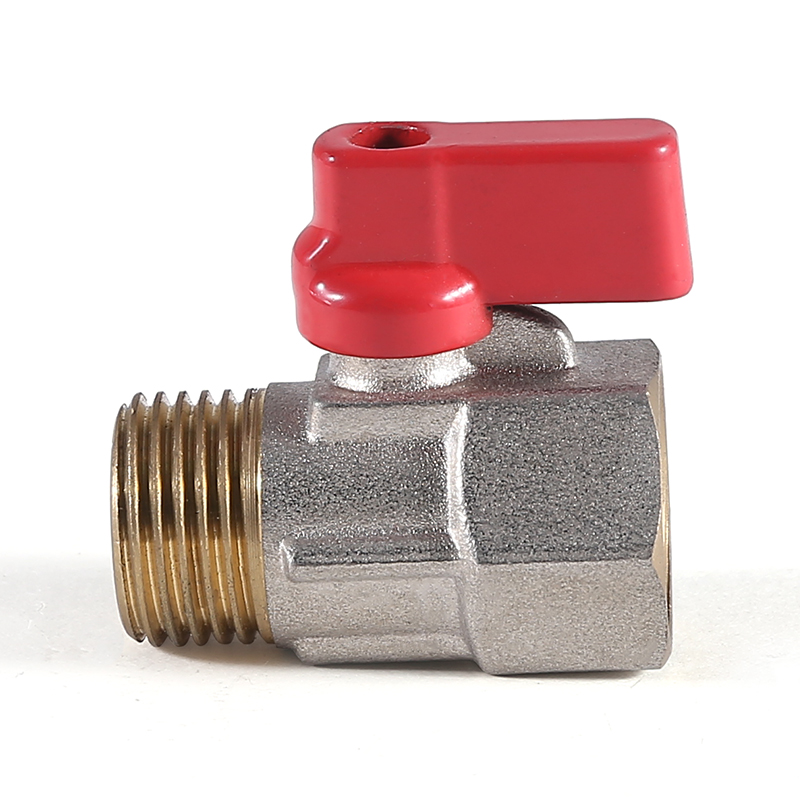The Impact of Technological Advancements on Mini Control Valve Design and Function
Custom Cheap Mini Control Miniature Float Ball Valve in China
The field of fluid control has witnessed significant evolution with the advent of technological advancements. Among the various components that have been influenced by these changes, Mini Control Valves (MCVs) stand out due to their critical role in precise flow regulation. This article delves into the impact of technology on the design and function of MCVs, highlighting how innovation has reshaped their performance and application in various industries.
Traditionally, Custom Mini Control Valves were simple mechanical devices used to control fluid flow. However, with the integration of advanced materials and electronic systems, these valves have become more sophisticated. The design of MCVs has evolved to accommodate the demands of high-precision applications, where accuracy and reliability are paramount.

One of the notable impacts of technology on Mini Control Valves is the introduction of new materials. The use of advanced alloys and polymers has enhanced the durability and resistance of MCVs to corrosion, wear, and severe temperatures. This has expanded their application range, making them suitable for harsh environments and aggressive fluids.
The incorporation of electronic actuation systems has been a game-changer for Mini Control Valves. These systems offer precise control over the valve's operation, allowing for variable flow rates and pressure adjustments. The integration of electronics has also facilitated the implementation of feedback mechanisms, which help in maintaining a consistent flow, thus improving process efficiency.
The Internet of Things (IoT) has brought about a new era for Cheap Miniature Float Valves. With the ability to connect to a network, these valves can now transmit data regarding their status and performance. Smart sensors embedded within MCV provide real-time monitoring, allowing for predictive maintenance and reducing downtime. This connectivity also enables remote operation and control, which is particularly beneficial in hazardous or inaccessible locations.
The precision of Mini Control Valves has been significantly improved through technological advancements. Modern MCVs can now achieve tighter shut-off capabilities and more accurate flow control, which is crucial in applications such as chemical dosing and pharmaceutical processes. The use of micro-actuators and advanced control algorithms has contributed to this enhanced precision.
Another benefit of technological advancements in Mini Control Valves is the improvement in energy efficiency. By optimizing the flow characteristics and reducing pressure drops, these valves help conserve energy. This is particularly important in industries where energy costs are a significant concern.
The design of Mini Control Valves has become more customizable due to advancements in manufacturing technology. Valves can now be tailored to specific application requirements, offering a range of sizes, materials, and configurations. This flexibility allows for better integration into various systems and processes.
Safety has always been a priority in the design of Mini Control Valves, and technology has played a crucial role in enhancing safety features. The incorporation of fail-safe mechanisms and emergency shut-off systems has made these valves more reliable in critical applications. Additionally, the use of non-intrusive inspection technologies has improved the safety of maintenance procedures.
The environmental impact of Mini Control Valves has also been addressed through technological advancements. The development of eco-friendly materials and the reduction of hazardous emissions during operation have made these valves more sustainable. Furthermore, the energy efficiency improvements mentioned earlier also contribute to a reduced environmental footprint.
The impact of technological advancements on Mini Control Valves is profound, affecting their design, function, and overall performance. From improved materials and electronic actuation to smart sensors and IoT integration, these innovations have transformed the way MCVs operate. As technology continues to evolve, it is expected that Mini Float Ball Valve in China will become even more sophisticated, offering greater precision, efficiency, and safety. The future of MCVs is promising, with the potential to revolutionize fluid control in various industries.
-
Feedback


 English
English 中文简体
中文简体 русский
русский Email us now!
Email us now!









